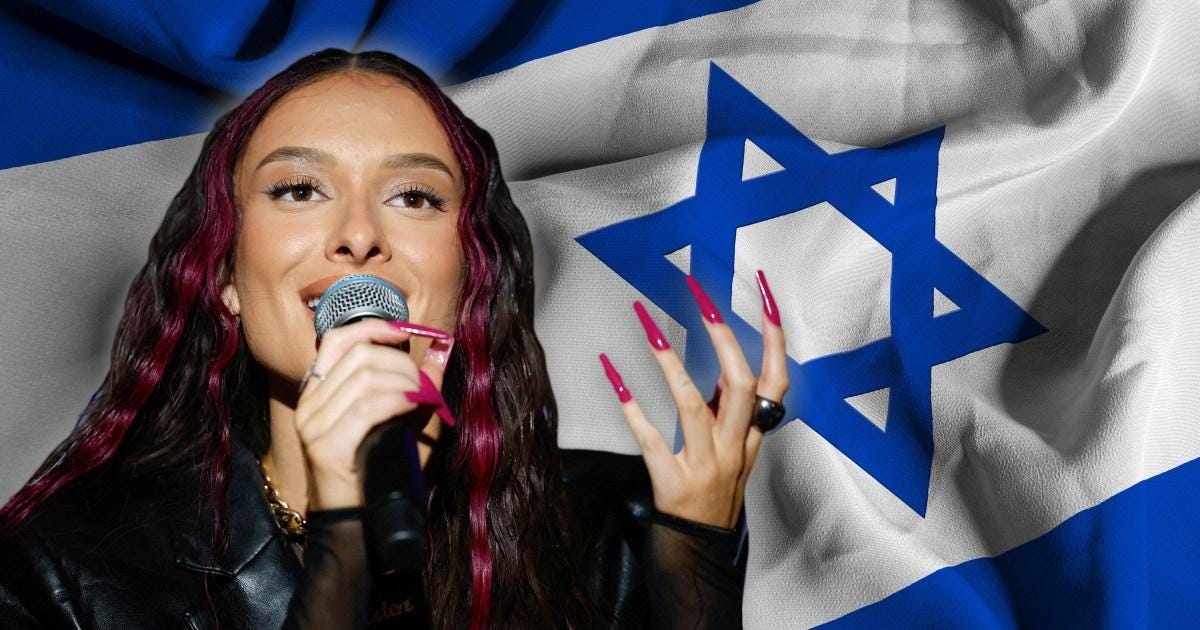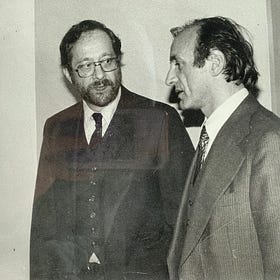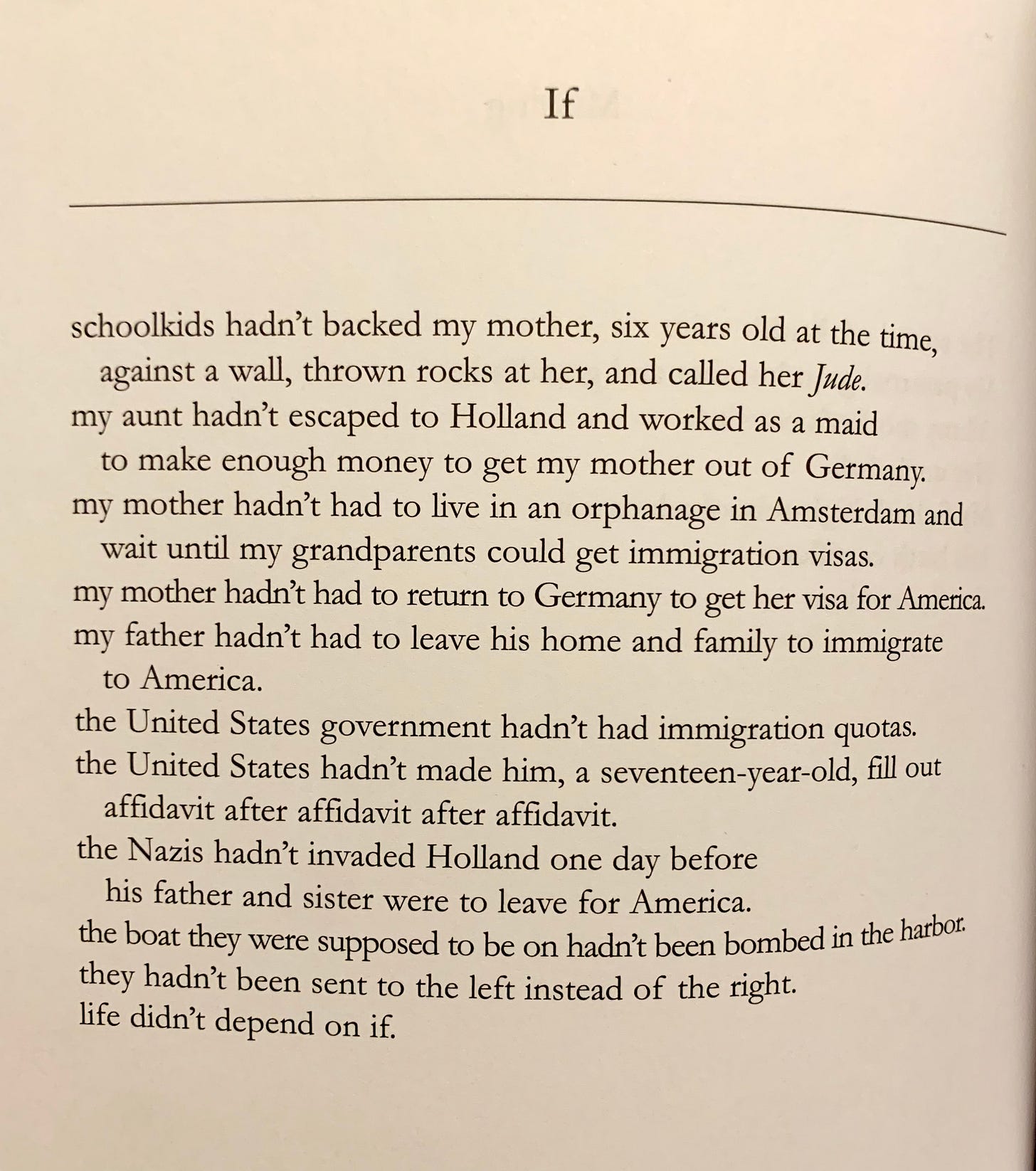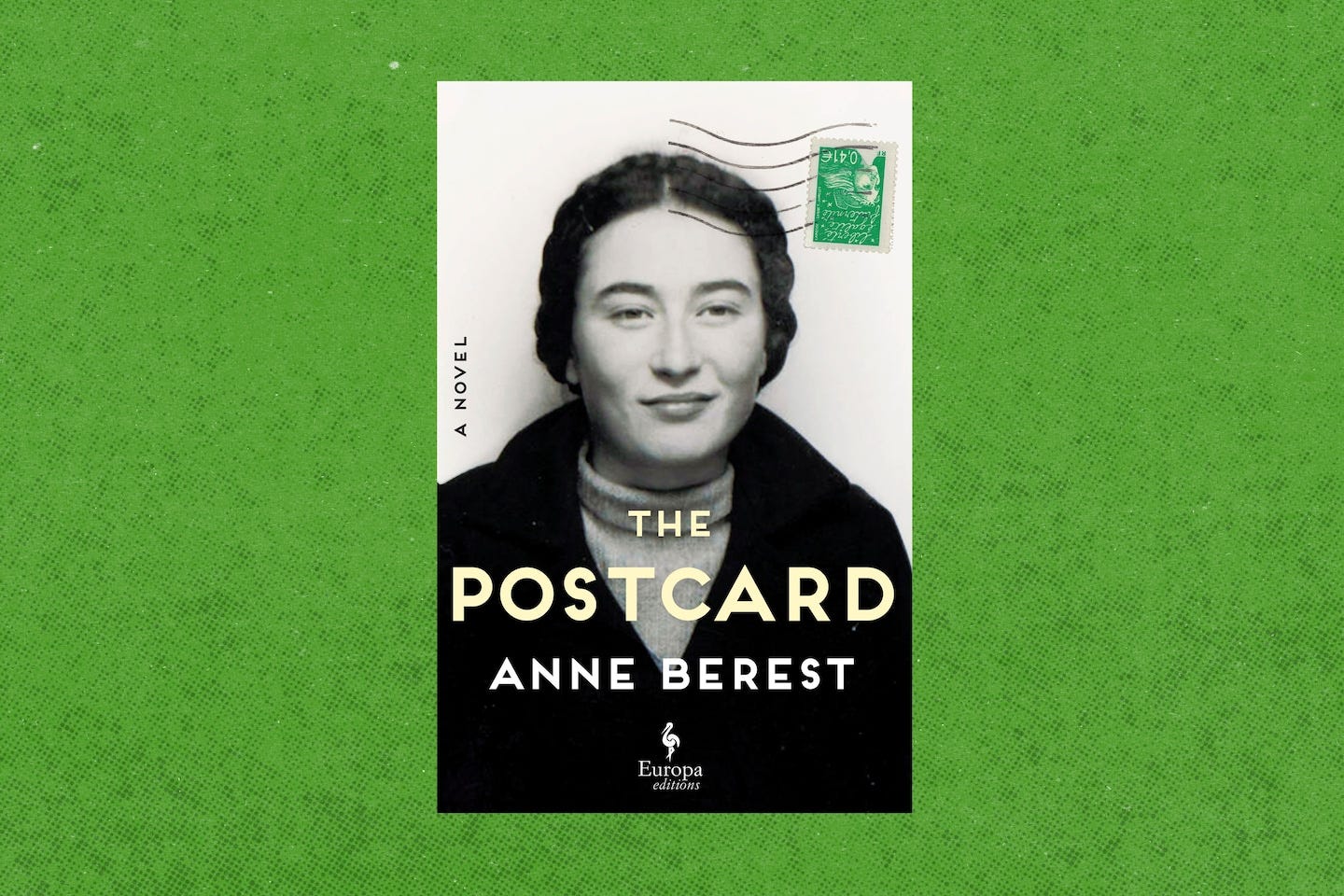Yom HaShoah and Honoring the Six Million
Holocaust Remembrance Day content and a brief review of Anne Berest's book, The Postcard.
Yom HaShoah was this earlier this week, and because I’m a procrastinator, you’re getting a Drop about it after the fact. But at least I didn’t forget. I would never.
From Holocaust survivors to college students, Jews today are noticing a pattern reminiscent of 1930s Germany. I’m talking about an increase in antisemitism worldwide, including the boycott of Israeli stores, ordinary people thinking they are doing right by tearing down flyers reflective of Jewish pain, intimidation tactics used to harass and/or silence Jewish students, and mobs in Europe hunting down Israeli tourists, just to name a few. I see calls for another Holocaust, or that “Hitler was right” in the comments section. Mental health tip: don’t read the comments section.
It’s our responsibility to not only pause for a moment in honor of the six million lives lost 80 years ago, but to tell their stories to keep their memories alive. This week, I had the honor of hearing all kinds of stories from colleagues about their loved ones: partisan fighters, DP camp lovers, and family members who risked their lives jumping out of cattle cars and in doing so, went on to create future generations of Jews.
And tomorrow, Israel performs in the final round of Eurovision. Take that, Nazis! Everyone wish Eden Golan b’hatzlacha!!
As we know, the only way to combat hate is with education and Jewish pride. And maybe some Krav Maga lessons. Here’s some Yom HaShoah content.
Read last year’s Drop written by my dad on a Holocaust education program he ran at the University of Bridgeport with Elie Wiesel:
Studying the Shoah: An Educational Series
I lack words, but I am compelled to write, compelled. I want to ask you all not to forget the dead. I want to beg you, asking in every way I know how, to take our revenge. I want you to leave a mark for us – a headstone as tall as the heavens, A commemoration that the whole world will see –
A Poem by Janet R. Kirchheimer
Someone You Should Know: Dietrich Bonhoeffer
The other night in my neighborhood, I walked past a church with a sign paying homage to Dietrich Bonhoeffer. I didn’t know who he was, so maybe you don’t either. He’s someone you should know.
Dietrich Bonhoeffer was a German Lutheran pastor and theologian who spoke out against the Nazis during World War II. His values of social justice and the moral imperative to stand against injustice led to his involvement in the resistance movement, even at great personal risk. Bonhoeffer wrote "The Cost of Discipleship" and "Letters and Papers from Prison," which continue to inspire with their profound insights into faith, ethics, and the nature of political resistance. He was executed by the Nazis in 1945, just weeks before the end of the war, but his legacy as a courageous advocate for peace and righteousness lives on.
📖 Book Rec: The Postcard by Anne Berest
After seeing this book everywhere last year, I finally picked it up (well, the audiobook). The narration made it hard to tell which character was speaking at times (I wish I read the darn thing), but by the end, I was crying, left feeling distraught and heartbroken. Not a light read.
Based on a true story, the main character’s family receives a mysterious postcard in the mail bearing the names of her relatives who died in the Holocaust. While juggling Jewish identity and raising a daughter, Anne begins a long search for its anonymous sender.
Part Holocaust novel that jumps between eras, part mystery, this book vividly captures a French family completely torn apart by the Holocaust, and a granddaughter trying to fill in the gaps. It helped me better understand France’s role in the war and French Jewry, specifically how French Jews weren’t seen as French, but as “the other.” While reading it, I thought, “There’s no way that the daughter of a survivor would have such little interest or knowledge in her relatives,” but I came to understand how that information was concealed from her during her formative years. Anne’s family chose to raise her more French than Jewish for her protection. No wonder she was grappling with her Jewish identity.
Shabbat Drop-In
🌸 SAVE THE DATE! The annual Shabbat Drop Shavuot picnic and kosher cheese tasting is BACK on Sunday, June 16th. I know it’s Fathers Day. Bring your father. ;)
Shabbat Shalom,







Thank you Miranda and Fred. How I wish I had been in CT instead of slugging through my PhD in New York at the time of this lecture series. My education of the Holocaust began sitting beside my uncle Timothy. As a chaplain, he had been selected to help document the atrocities committed against Jews as the death camps were opened at the end of WW2. He felt it his duty to tell not only me, my family, but countless others of the horrors he had seen and suffered. “Never forget,” he would say, “never forget.”